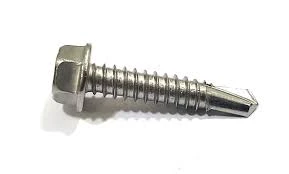High Strength Hex Head Bolts for Enhanced Durability and Performance in Various Applications
High Tensile Hex Head Bolts An Overview
High tensile hex head bolts are critical components in various engineering and construction applications. They serve the dual purpose of fastening and providing structural integrity, making them indispensable in a wide range of settings, from bridges and buildings to machinery and automotive engineering.
What are High Tensile Hex Head Bolts?
High tensile bolts are designed to withstand high levels of stress and tension. Characterized by their hexagonal heads, these bolts require a wrench for installation, allowing for a secure and stable fastening. The term high tensile indicates that these bolts are manufactured from specially treated steel, enhancing their strength and durability. This is crucial for applications where safety and reliability are paramount.
Material Composition
Typically, high tensile hex head bolts are made from alloy steels that are subjected to heat treatment processes. Common materials include carbon steel (such as ASTM A325 or A490), which are known for their strength and fatigue resistance. Depending on the specific requirements, other materials like stainless steel or titanium can also be used, offering corrosion resistance and increased longevity. The choice of material depends on factors including the environment in which the bolts will be used and the specific mechanical properties required for the application.
Strength Grades
high tensile hex head bolts

High tensile hex head bolts are available in various strength grades, which are indicative of their load-bearing capacity. For example, bolts may be categorized into grades such as 8.8, 10.9, and 12.9, with higher numbers signifying stronger bolts. The grading system allows engineers and builders to select the appropriate bolt based on the anticipated loads and stresses. It's important to match the bolt grade to the application to prevent structural failure.
Applications
Due to their strength, high tensile hex head bolts are widely used in numerous fields. In construction, they are routinely employed to secure structural steel components, ensuring stability and integrity in high-rise buildings and bridges. In the automotive industry, these bolts are essential for assembling engines, transmission systems, and other critical components that experience high levels of stress. Additionally, high tensile bolts play a vital role in manufacturing equipment and machinery, where durability under load is crucial for operational efficiency.
Installation and Maintenance
Proper installation of high tensile hex head bolts is essential to achieve their full strength potential. It involves applying the correct torque during fastening, as under-tightening can lead to loosening, while over-tightening risks stripping the threads or damaging the material. Regular inspection and maintenance are also critical, particularly in high-stress applications. Engineers often recommend periodic checks to ensure that bolts remain secure and that no signs of wear or damage have developed, thus preventing potential accidents.
Conclusion
High tensile hex head bolts are a cornerstone of modern engineering and construction. Their ability to bear significant loads while providing ease of use makes them an essential choice for a multitude of applications. As industries continue to push the boundaries of design and construction techniques, the reliance on high performance, high tensile fasteners like hex head bolts will only increase. Understanding their properties, proper installation, and maintenance is vital for ensuring the longevity and safety of the structures and machinery they support. With advancements in materials science, the future of high tensile bolts looks promising, paving the way for stronger, safer, and more efficient applications across various sectors.
-
Weatherproof Plastic Expansion Anchors for OutdoorNewsJun.06,2025
-
Sustainability in the Supply Chain: Eco-Friendly TEK Screws ProductionNewsJun.06,2025
-
Load-Bearing Capacity of External Insulation FixingsNewsJun.06,2025
-
Double Head Bolts: Enhancing Efficiency in Industrial MachineryNewsJun.06,2025
-
Corrosion Resistance in Chipboard Screws: Coatings for Wholesale DurabilityNewsJun.06,2025
-
Butterfly Toggle Bolts : Enhancing Structural ResilienceNewsJun.06,2025
